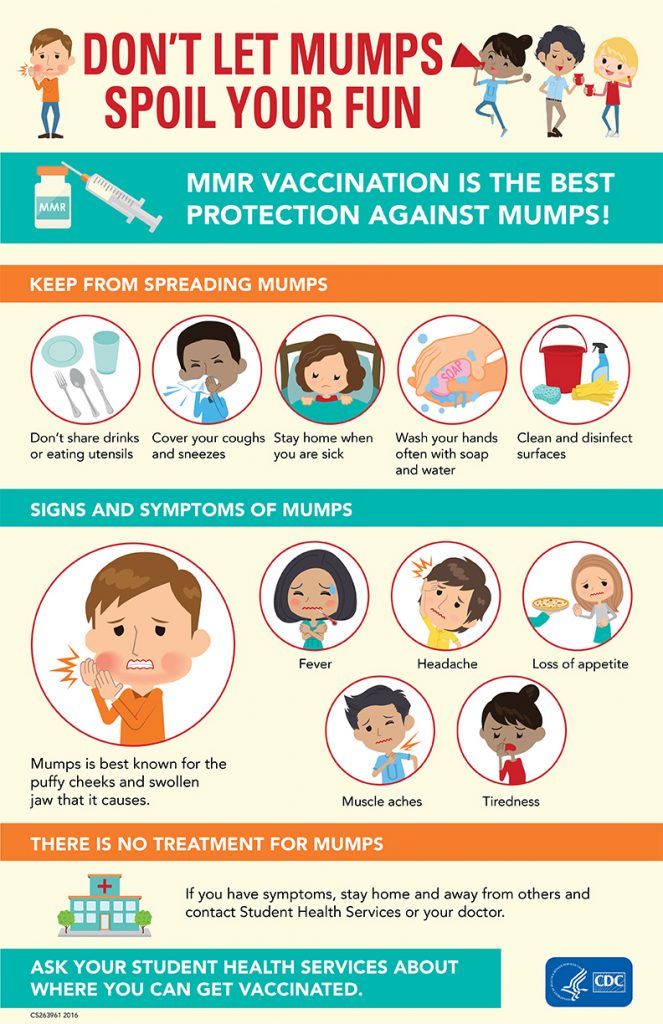By NewsDesk @infectiousdiseasenews
We recently reported that several East Coast universities in the US were experiencing mumps outbreaks, including South Carolina.
In recent days we see an update out of the College of Charleston and a report out of Clemson University.

College of Charleston
State health officials reported a mumps outbreak at the College of Charleston about one month ago. Now the school have reported additional cases bringing the total to 11 to date.
According to an ABC 4 report, College of Charleston staff has been isolating individuals who test positive, and has worked to verify student immunization records to limit the spread of the virus.
In South Carolina, students can be granted an immunization waiver based on medical or religious reasons.
Clemson University
On Friday morning, Clemson officials sent an email to all students, staff and faculty concerning a confirmed mumps case on campus.
School officials believe this is an isolated case but the campus is trying to be proactive so more people don’t get sick.
Clemson officials said they are working with state health officials make sure any risk of mumps transmission is quickly identified and addressed.
Mumps
Mumps is a contagious viral illness that occurs worldwide. The virus is spread by contact with saliva or respiratory tract droplets of a sick person.
Symptoms typically begin 14-18 days after exposure to the virus. Many people feel tired and achy, have a fever, and swollen salivary glands on the side of the face, usually below and in front of the ear.
Others may feel extremely ill and be unable to eat because of jaw pain, and a few will develop serious complications. However, about one-third of those infected do not experience this symptom.
The mumps vaccine is a part of the MMR (measles, mumps, rubella) vaccination.Two doses of MMR are recommended: The first dose is about 78% effective against mumps; two-dose vaccine effectiveness is 88%.
MMR vaccine prevents most, but not all, cases of mumps and complications caused by the disease. People who have received two doses of the MMR vaccine are about nine times less likely to get mumps than unvaccinated people who have the same exposure to mumps virus.
- Vaping illness cases top 1600, Flavored e-cigarettes study
- Intranasal anthrax vaccine: BlueWillow Receives FDA Clearance to Begin Phase 1 Study
- Breakthrough in the hunt for a new vaccine for C. diff
- North Carolina reports 1st flu death of season
- Connecticut reports 4th confirmed measles case of 2019
- Mumps outbreak at a Brussels university update

